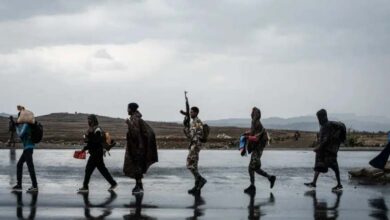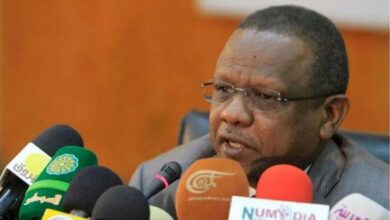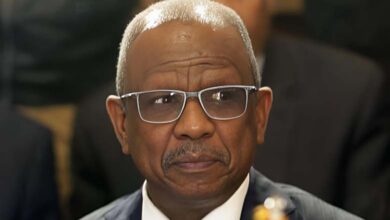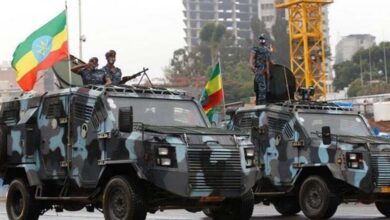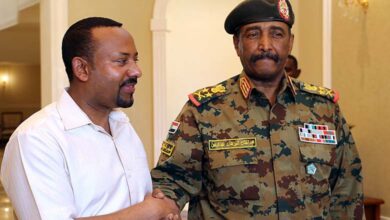Khartoum’s Liberation Exposes Alliances: Muslim Brotherhood’s Congratulatory Message to the Sudanese Army Raises Questions
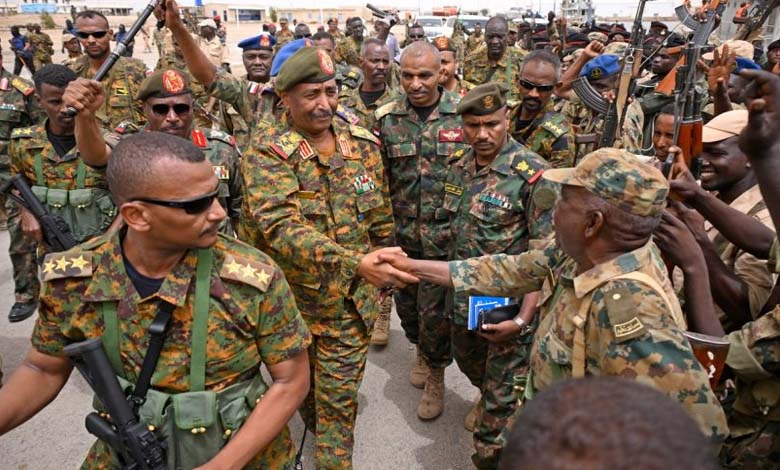
The Muslim Brotherhood’s congratulatory message to the Sudanese army for what they described as the “liberation of Khartoum” is not merely a political statement. It is a serious indicator of the organization’s future direction and its willingness to use violence and form questionable alliances to regain its influence.
-
Under the Muslim Brotherhood’s Sponsorship Purges Cracks and Serious Violations within the Sudanese Army
-
A report highlights the crimes and atrocities committed in Sudanese Army and Muslim Brotherhood prisons
Unless this agenda is countered by a unified national vision aiming to build a genuine civil state, Sudan is likely to enter a new phase of chaos and division—potentially more intense than those that preceded it.
Amid the rapidly evolving Sudanese political landscape, the Brotherhood’s statement celebrating the alleged “liberation of Khartoum” by the Sudanese army sheds light on deeper dimensions beyond mere rhetoric or formal courtesy. It reveals ideological ties and strategic alliances that warrant close scrutiny.
-
Demands for the Dissolution of the Sudanese Army and Pursuit of the Muslim Brotherhood
-
The Army and the Muslim Brotherhood Loot Sudanese Properties in Omdurman and Wad Madani
The Brotherhood’s congratulations to the army
The congratulatory message issued by the Muslim Brotherhood to the Sudanese army was not a passing event. It came within a context full of implications, primarily the reaffirmation of the longstanding and renewed relationship between the Islamist current in its various forms and the military leadership that has ruled Sudan in succession. Over past decades, there was a clear alignment between the former regime led by Omar al-Bashir and Islamist movements—foremost among them, the Muslim Brotherhood—which provided ideological cover in exchange for influence within state institutions.
Even after the fall of the regime in 2019, lines of communication remained open between some elements of the army and Islamist factions, albeit discreetly. Therefore, an explicit statement of support at such a critical juncture reflects the continuation of these ties and suggests that the Brotherhood still views the Sudanese army as a tool upon which it can rely to regain its power.
-
The Muslim Brotherhood and the Sudanese Army: A History of Rumor-Mongering
-
Will the Sudanese Army and the Muslim Brotherhood Succeed in Igniting a Civil War in Darfur?
The organization’s desire to return to power
This message also reveals the true face of the Brotherhood’s agenda in Sudan, which hinges on betting on military resolution as the pathway back to power—after the failure of its political and social efforts to regain the trust of the Sudanese public.
Having lost much of its popular base following the revolution, the Brotherhood appears to have decided to realign with the military and push for ending the transitional period through force rather than dialogue. This approach aligns with the Brotherhood’s modus operandi in other countries, where it often relies on force or exploits the chaos of armed conflict to assert its presence.
Such a strategy poses a real threat to Sudan’s future, as it essentially revives the very system the revolution sought to dismantle and obstructs the democratic transition envisioned by civilian forces.
-
The Sudanese Muslim Brotherhood, in collaboration with the army, seeks to expand the war zone… What have they done?
-
Sudan between the Flames of War and the Map of Influence: A Struggle for Territory or Survival
Al-Burhan, a mere temporary puppet
From the tone and content of the statement, it becomes clear that the Brotherhood does not regard General Abdel Fattah al-Burhan as anything more than a transitional tool to achieve their primary goal: a return to power.
The discourse reflects not respect for Burhan personally, but a celebration of the army’s actions—as if the focus were on the military institution as a whole rather than its leader. It is well-known that Brotherhood-affiliated groups treat military leaders as situational allies, to be discarded or sidelined once their objectives are met.
Thus, the Brotherhood’s apparent support for al-Burhan should not be interpreted as a permanent alignment but rather as one step in a broader plan to fully reoccupy the levers of the state—potentially by more extreme means if necessary.
-
The Muslim Brotherhood’s Congratulations to the Sudanese Army… A Move That Reveals the Group’s Role in Fueling the Conflict
-
Sudanese Army’s Threats to its Neighbors: An Internal Distraction Signaling Regional Dangers
-
A Turning Point in the Sudan War with the Army’s Recapture of the Presidential Palace in Khartoum


